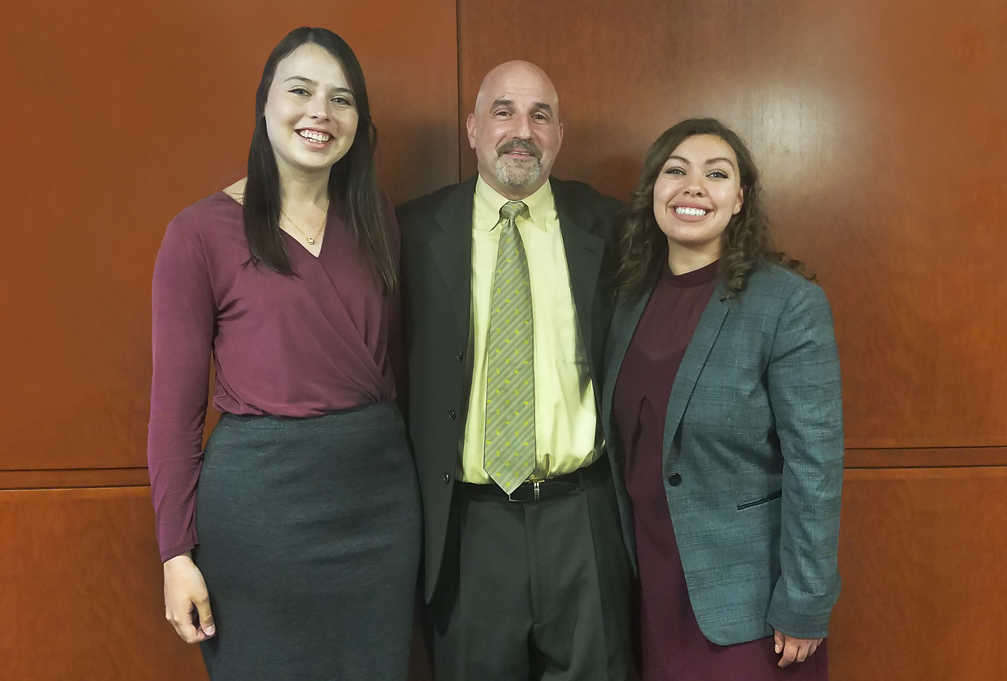Jonathan Rapping, JD '95, is a nationally renowned criminal justice innovator; he is the Founder and President of Gideon's Promise, an organization that is focused on transforming the culture of indigent defense. He recently visited GW Law and gave a lecture on the criminal justice system in the United States, the current crisis of indigent defense, and the transformative power of public defenders in protecting the Sixth Amendment right to counsel.
Mr. Rapping began his lecture on the current narrative that surrounds the criminal justice system, in particular, the routine injustice in the court system. He believes that mass incarceration and police shootings are symptoms of a larger problem. "The disease is that we have allowed ourselves to embrace a narrative that says some lives are not worthy of dignity and respect," Mr. Rapping said. In order to change the criminal justice system and transform justice in the United States, he believes that an army of aspiring advocates must come forward to change the prevailing criminal justice narrative.
To understand the current narrative, Mr. Rapping provided an overview of how the practice of law and justice has evolved over time. During his lecture, he provided examples of cases that shaped the justice system in the South, such as the Scottsboro Boys case in which nine African American teenagers were accused of raping two white women in 1931. The handling of the case was controversial because the defendants had received poor legal representation. All but one were convicted of rape and sentenced to death.
The miscarriage of justice in this case caused a response around the world. As a result, the idea that people should have advocates when their life and liberty is on the line gained a groundswell of support.
During his lecture, Mr. Rapping discussed the representation of the public defender in U.S. media and in mainstream popular culture. He examined iconic television shows and movies that portrayed attorneys as heroes, such as The Public Defender, a dramatic series that aired in the 1950s, and To Kill a Mockingbird (1962). However, he acknowledged that defense attorneys are no longer viewed as criminal justice heroes, and people now see the accused as the dehumanized menace or "the other." These are concerning societal views that Mr. Rapping has been fighting to change.
Mr. Rapping emphasized to students that they can revive the hero image of the public defender and change attitudes about indigent defense and justice. He called on law students to embody the meaning of justice and to be advocates for the most vulnerable. "You all are the promise for the future. You are the hope in changing the narrative of our criminal justice system," Mr. Rapping said.
Alexandra Stephens, a 3L who was a Gideon's Promise summer law clerk, said, "In law school, we often forget that people are facing the brutalities of the legal system with little guidance or assistance and that there are particularly harsh realities they face if they lose. In his lecture, Mr. Rapping did an excellent job of reminding law students that they are actual human beings involved in every case, and to them, the law is much more than theoretical. He reminded us that as lawyers, we should commit ourselves to humanity through the law. He was, as always, one of the most inspiring speakers a public interest law student could hope to hear."
The event was put together by the Criminal Law Society, the ACLU at GW Law, and the Pro Bono and Public Interest Committee.


